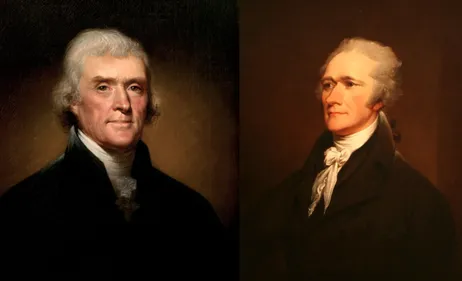 Debt vs Autonomy, From Dr. Robert Malone
Debt vs Autonomy, From Dr. Robert Malone
In many ways, Jefferson and Hamilton represent the great tension at the heart of the American experiment in self governance, and the battle between the two political forces which these individuals represent is the central conflict which has dominated American politics since even before the Declaration of Independence, Constitution and Bill of Rights were drafted. Thomas Jefferson, together with John Adams, James Madison and Thomas Paine were the leaders of the populist block during the time of the American Enlightenment and the creation of the United States. In contrast, Alexander Hamilton was closely allied with the Rothschild banking and finance family. For example, with Rothschild financing Alexander Hamilton founded two New York banks, including the Bank of New York. The Rothschild family owns the Bank of England and leads the European Freemason movement. All US Masonic lodges are to this day warranted by the British Crown, whom they serve as a global intelligence and counterrevolutionary subversion network. Hamilton was one of many Founding Fathers who were Freemasons. George Washington, Benjamin Franklin, John Jay, Ethan Allen, Samuel Adams, Patrick Henry, John Brown and Roger Sherman were also Masons. Roger Livingston helped Sherman and Franklin write the Declaration of Independence. He gave George Washington his oaths of office while he was Grand Master of the New York Grand Lodge of Freemasons. Washington himself was Grand Master of the Virginia Lodge. Of the General Officers in the Revolutionary Army, thirty-three were Masons. The First Continental Congress convened in Philadelphia in 1774 under the Presidency of Peyton Randolph, who succeeded Washington as Grand Master of the Virginia Lodge. The Second Continental Congress convened in 1775 under the Presidency of Freemason John Hancock. In 1779 Benjamin Franklin became Grand Master of the French Neuf Soeurs (Nine Sisters) Masonic Lodge, to which John Paul Jones and Voltaire belonged. Franklin was also a member of the more secretive Royal Lodge of Commanders of the Temple West of Carcasonne, whose members included Frederick Prince of Whales.
During creation of the nation, populist Thomas Jefferson argued that the United States needed a publicly-owned central bank so that European monarchs and aristocrats could not use the printing of money to control the affairs of the new nation. However, larger forces were set in motion which favored a privately owned central bank for the new nation. In 1789 Alexander Hamilton became the first Treasury Secretary of the United States (under President George Washington). Thomas Jefferson was appointed Secretary of State. William Randolph became the nation’s first Attorney General and Secretary of State under George Washington, but his family returned to England loyal to the Crown. John Marshall, the nation’s first Supreme Court Justice, was also a Mason. The Rothschilds sponsored Hamilton’s arguments for a private US central bank, and in the end carried the day. In 1791 the Bank of the United States (BUS) was founded, with the Rothschilds as main owners.

I read and interpreted the genius @valued-customer's article.
It's hard to understand with my poor English reading skills, but I guess @valued-customer wrote about the background of the birth of the Republican Party and the Democratic Party in the United States! 😄
I concluded that Thomas Jefferson created the Democratic Party and Alexander Hamilton created the Republican Party!
I saw the Republicans and the Democrats as the driving forces that formed the foundation of America's founding ideology, governing ideology, and political and economic system!
I consider George Washington, Thomas Jefferson and Alexander Hamilton to be the Founding Fathers of the United States!

I guessed that my esteemed senior Steve probably had the most respect for George Washington!
I believe that the United States became a republic because George Washington refused to become America's first emperor!
I imagined dangerously that if George Washington had become emperor, the present United States would probably be an empire.
Maybe Steve finds my imagination dangerous and disrespectful?😄
I concluded that Thomas Jefferson created the first Democrat and Alexander Hamilton the Republican!
I guessed that maybe Steve would disagree with my conclusion!
Looking at the lives and achievements of America's founding fathers,
I believed that I could understand American political and economic ideas and systems!
I suddenly imagined that there were figures similar to Alexander Hamilton and Thomas Jefferson in China!
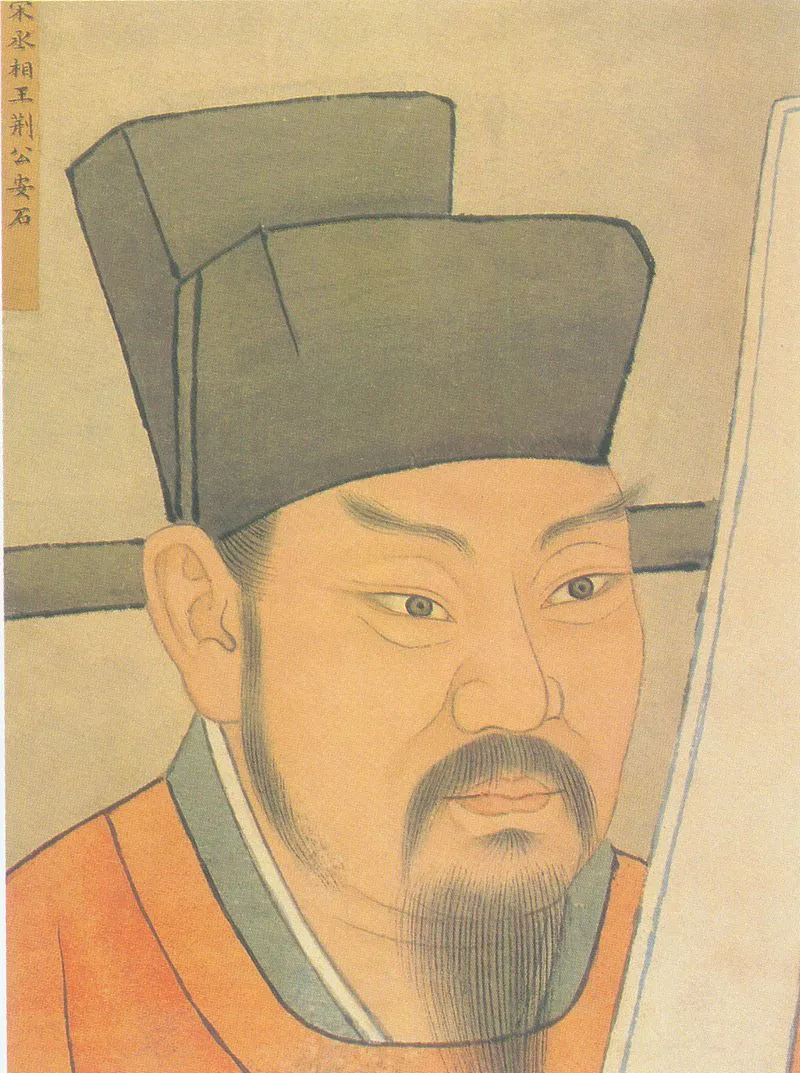 Wang Anshi ([wǎŋ ánʂɨ̌]; Chinese: 王安石; December 8, 1021 – May 21, 1086)
Wang Anshi ([wǎŋ ánʂɨ̌]; Chinese: 王安石; December 8, 1021 – May 21, 1086)
Wang Anshi ([wǎŋ ánʂɨ̌]; Chinese: 王安石; December 8, 1021 – May 21, 1086), courtesy name Jiefu (Chinese: 介甫), was a Chinese economist, philosopher, poet, and politician during the Song dynasty. He served as chancellor and attempted major and controversial socioeconomic reforms known as the New Policies.[3][4] These reforms constituted the core concepts of the Song-dynasty Reformists, in contrast to their rivals, the Conservatives, led by the Chancellor Sima Guang.
Wang Anshi's ideas are usually analyzed in terms of the influence the Rites of Zhou or Legalism had on him.[5] His economic reforms included increased currency circulation, breaking up of private monopolies, and early forms of government regulation and social welfare. His military reforms expanded the use of local militias, and his government reforms expanded the education system and attempted to suppress nepotism in government. Although successful for a while, he eventually fell out of favor with the emperor.
Wang Anshi ([wǎŋ ánʂɨ̌]; Chinese: 王安石; December 8, 1021 – May 21, 1086) was a politician who ruled The Song dynasty over 1000 years ago, whose ideas and achievements are still controversial among East Asians.
It is because Wang Anshi's ideology and political achievements are still the biggest issues in East Asia, the issue of production, consumption, and ownership.
Many East Asians claim that his ideas and governance are similar to those of Marx in Europe.
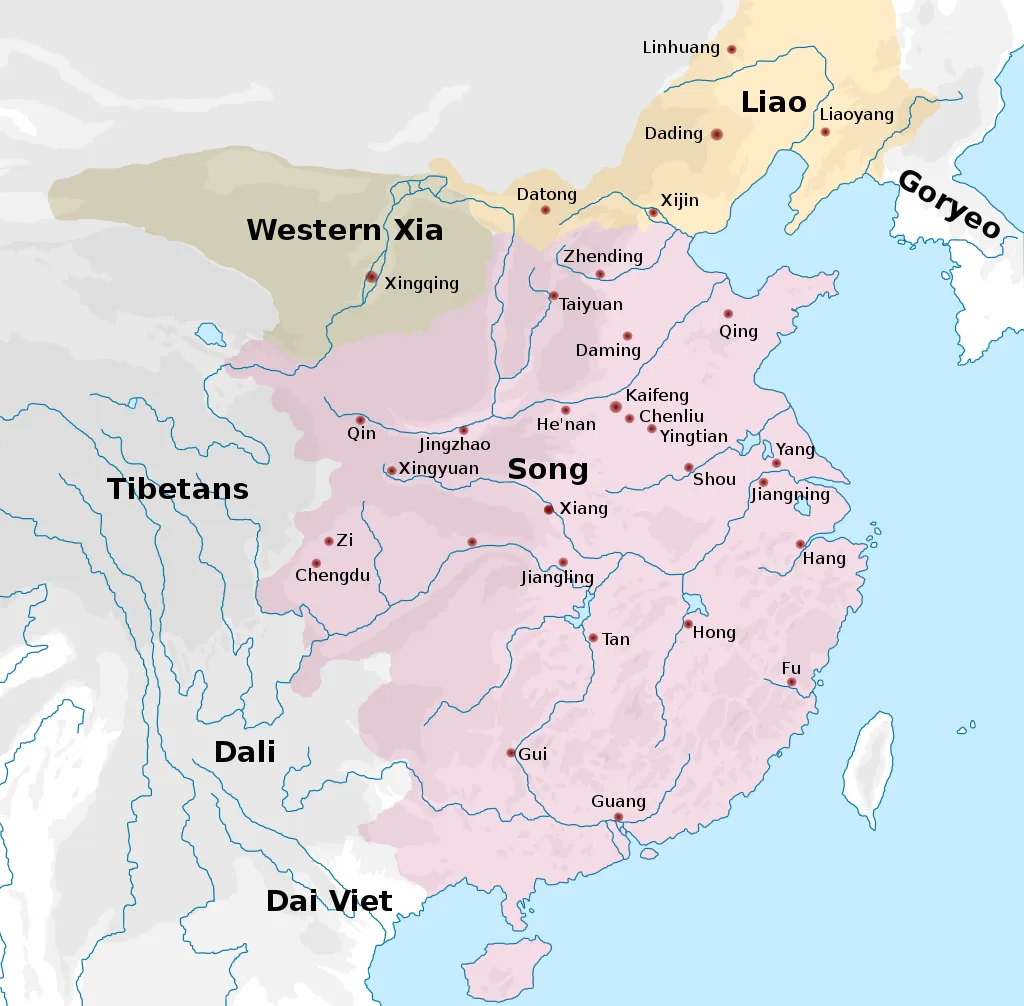 The Song dynasty (宋/sʊŋ/) was an imperial dynasty of China that ruled from 960 to 1279
The Song dynasty (宋/sʊŋ/) was an imperial dynasty of China that ruled from 960 to 1279
The Song dynasty (/sʊŋ/) was an imperial dynasty of China that ruled from 960 to 1279. The dynasty was founded by Emperor Taizu of Song, who usurped the throne of the Later Zhou dynasty and went on to conquer the rest of the Ten Kingdoms, ending the Five Dynasties and Ten Kingdoms period. The Song often came into conflict with the contemporaneous Liao, Western Xia and Jin dynasties in northern China. After retreating to southern China following attacks by the Jin dynasty, the Song was eventually conquered by the Mongol-led Yuan dynasty.
The New Policies (Chinese: 新法; pinyin: xīnfǎ), also known as Xining Reforms (熙寧變法; Xining being the first era name used by Emperor Shenzong), Xifeng Reforms (熙豐變法; Xifeng being the portmanteau of the two era names used by Emperor Shenzong, Xining and Yuanfeng) or Wang Anshi Reforms (王安石變法),[1] were a series of reforms initiated by the Northern Song dynasty politician Wang Anshi when he served as minister under Emperor Shenzong from 1069–1076. The policies were in force until the emperor's death, then repealed, then enacted again and were a focus of court politics until the end of the Northern Song. In some ways, it continued the policies of the aborted Qingli Reforms from two decades earlier.
Wang Anshi's ideas and political achievements are summarized in The New Policies (Chinese: 新法; pinyin: xīnfǎ).
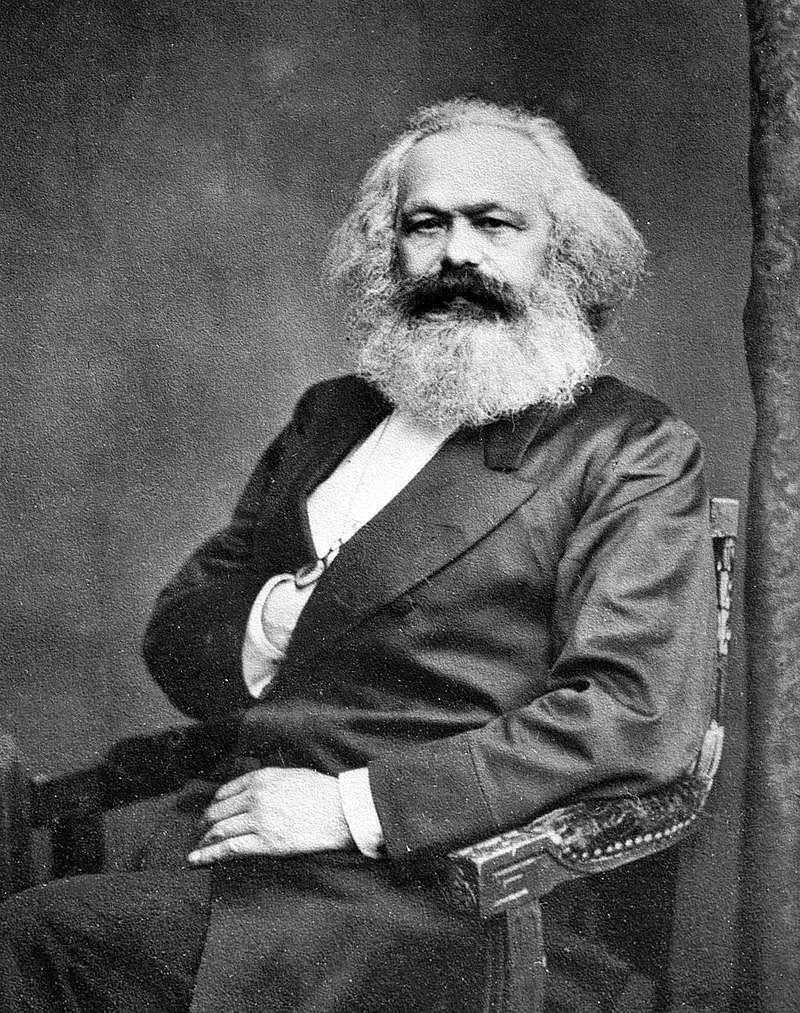 Karl Marx
Karl Marx
Karl Marx (German: [maʁks]; 5 May 1818 – 14 March 1883) was a German-born philosopher, economist, historian, sociologist, political theorist, journalist, critic of political economy, and revolutionary socialist. His best-known works are the 1848 pamphlet The Communist Manifesto and the three-volume Das Kapital (1867–1894); the latter employs his theory of historical materialism in an analysis of capitalism, representing his greatest intellectual achievement. His theories and ideas, and their subsequent development, are collectively known as Marxism, and have exerted enormous influence on intellectual, economic, and political history.
Born in Trier in the Kingdom of Prussia, German Confederation, Marx studied at the universities of Bonn, Berlin, and Jena, receiving a doctorate in philosophy from the latter in 1841. As a Young Hegelian, he was influenced by the philosophy of Georg Wilhelm Friedrich Hegel, and both critiqued and developed his ideas in works such as The German Ideology (written in 1846) and the Grundrisse (written in 1857–1858). In Paris in 1844, Marx wrote his Economic and Philosophic Manuscripts and met Friedrich Engels, a lifelong friend and collaborator. After moving to Brussels in 1845, they were active in the Communist League, and in 1848 wrote The Communist Manifesto, which expresses Marx's key ideas and ends with a call for revolution: "Working men of all countries, unite!" Marx was expelled from Belgium and Germany, and in 1849 moved to London, where he wrote The Eighteenth Brumaire of Louis Bonaparte (1852) and Das Kapital. In 1864, Marx helped found the International Workingmen's Association (First International), in which he countered the influence of anarchists led by Mikhail Bakunin. In his Critique of the Gotha Programme (1875), Marx wrote on revolution, the transition to communism, and the state. He died stateless in 1883, and was buried in Highgate Cemetery.
Marx's critical theories about society, economics, and politics hold that human societies develop through class conflict. In the capitalist mode of production, this manifests itself in the conflict between the ruling classes (known as the bourgeoisie) that control the means of production and the working classes (known as the proletariat) that enable these means by selling their labour-power in return for wages.[5] Employing a critical approach known as historical materialism, Marx predicted that capitalism produced internal tensions like previous socioeconomic systems and that these tensions would lead to its self-destruction and replacement by a new system known as the socialist mode of production. For Marx, class antagonisms under capitalism—owing in part to its instability and crisis-prone nature—would eventuate the working class's development of class consciousness, leading to their conquest of political power and eventually the establishment of a classless, communist society constituted by a free association of producers.[6] Marx actively pressed for its implementation, arguing that the working class should carry out organised proletarian revolutionary action to topple capitalism and bring about socio-economic emancipation.[7]
Marx has been described as one of the most influential figures in human history, and his work has been both lauded and criticised.[8] His work in economics laid the basis for some modern theories about labour and its relation to capital.[9][10][11] Many intellectuals, labour unions, artists, countries, and political parties worldwide have been influenced by Marx's work, often modifying or adapting his ideas. He is typically cited as one of the principal architects of modern social science.[12][13]
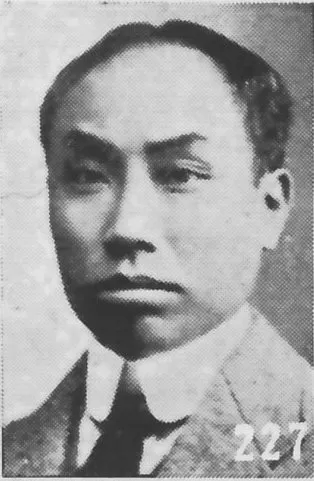 Chen Duxiu
陳獨秀
Chen Duxiu
陳獨秀
Chen Duxiu (Chinese: 陳獨秀; Wade–Giles: Ch'en Tu-hsiu; 8 October 1879 – 27 May 1942) was a Chinese revolutionary socialist, educator, philosopher and author, who co-founded the Chinese Communist Party (CCP) with Li Dazhao in 1921. From 1921 to 1927, he served as the Communist Party's first general secretary. Chen was a leading figure in both the Xinhai Revolution that overthrew the Qing dynasty and the May Fourth Movement for scientific and democratic developments in the early Republic of China. After his expulsion from the CCP in 1929, Chen was for a time the leader of China's Trotskyist movement.
Chen's ancestral home was in Anqing, Anhui, where he established the influential vernacular Chinese periodical New Youth. In order to support overthrowing the Qing government, Chen Duxiu had joined Yue Fei Loyalist Society (岳王會; Yuèwáng huì) which emerged from Gelaohui in Anhui and Hunan province.[1]
Chen Duxiu (Chinese: 陳獨秀; Wade–Giles: Ch'en Tu-hsiu; 8 October 1879 – 27 May 1942) was the founder of the Chinese Communist Party that now governs China.
Chen Duxiu believed there was a connection between the ideas of the Chinese thinker Wang Anshi ([wǎŋ ánʂɨ̌]; Chinese: 王安石; December 8, 1021 – May 21, 1086) and the European thinker Marx.
So, Chen Duxiu believed that Marx's communist ideas could create a hopeful future for China.
Chinese communists believed that Marx's ideas could harmonize and coexist with traditional Chinese ideas!
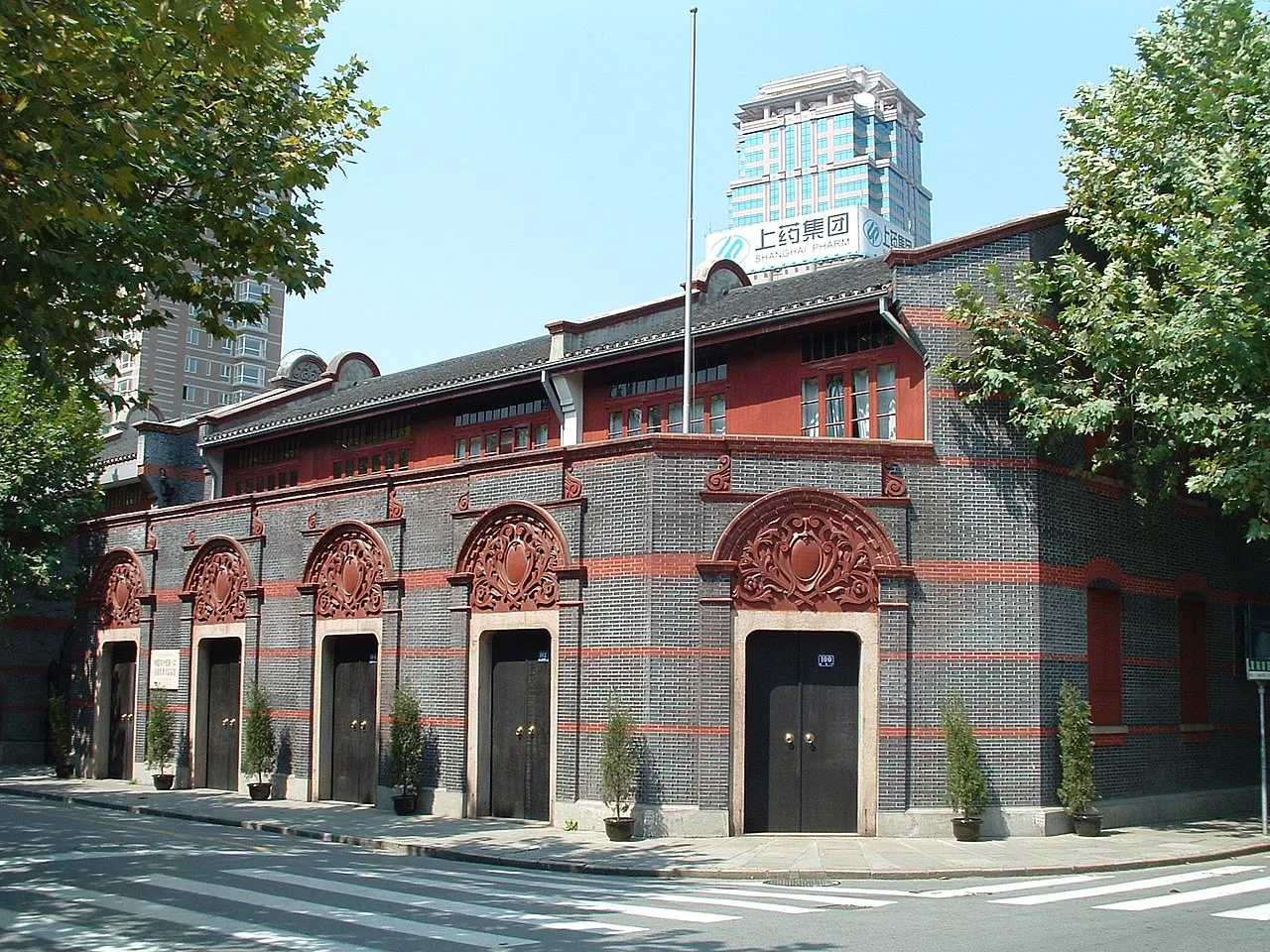 Site of the 1st Congress in Shanghai
Site of the 1st Congress in Shanghai
The 1st National Congress of the Chinese Communist Party was held in Shanghai and Jiaxing between July 23 and August 2, 1921. The Congress established the Chinese Communist Party (CCP). The congress began in a shikumen building of the French Concession area of Shanghai (near present-day Xintiandi in Huangpu District). In early June 1921, Dutch national Henk Sneevliet, also known as Ma Lin, a representative of Comintern, arrived in Shanghai, and urged various Communist cells in the country to get together for a national-level meeting. Russian Comintern representative Nikolski [ru; de] also attended the meeting. At the time, there were 57 members of the CCP.[1] Notably, the two founders of the party did not attend the congress: Chen Duxiu and Li Dazhao.
The meeting was put to an end due to harassment from the French Concession police on July 30. The delegates then agreed to move the meeting to a rented tourist boat on South Lake in Jiaxing. The Congress elected Chen Duxiu as Secretary (in absentia), Zhang Guotao as Director of Organization, and Li Da as Director of Propaganda.[1]
The General Assembly adopted The First Program of the Communist Party of China, stating that "the Party is to be named the Communist Party of China" and specifying its objectives: "to overthrow the power of the capitalist class[,]" to "eradicate capitalism and private ownership of property[,]" and to "join the Comintern."[2]
Of the 13 representatives who attended the congress in 1921, only two would be present at the proclamation ceremony of the People's Republic of China 28 years later: Mao Zedong and Dong Biwu. Others either became casualties of war in the decades that followed or left the party in one way or another (e.g. by expulsion or defection).
The site of the conference in Shanghai was converted into a museum in 1961. The South Lake Revolutionary Museum in Jiaxing, located on a central island of the lake, was constructed in 1959. A complex hosting more exhibits was constructed north of South Lake in 2011, also to commemorate the 1st Congress. The Congress would be followed by the 2nd National Congress of the Chinese Communist Party.
Many thinkers in China believed that Marxism would ensure China's rosy future, and as a result, the Communist Party of China was founded in 1921.
With the support of the Soviet Comintern , the first Chinese Communist Party was founded in 1921.
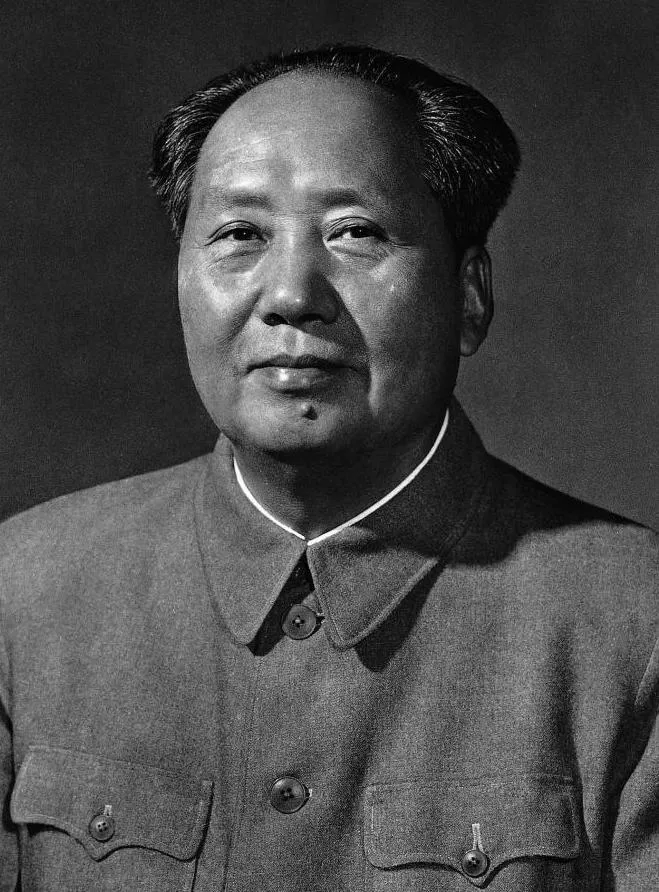 Mao Zedong
毛泽东
Mao Zedong
毛泽东
Young communists from all over China continued to receive financial support from the Comintern thereafter.
Among them was young Mao Zedong.
The process of turning Chinese overlords into communists has such complicated and simple reasons and backgrounds.
I claim that the East Asian overlords that my esteemed senior @valued-customer loves have such diverse and simple appearances!
It's a pity that I can't write more because my English conversation skills are at the level of elementary school students in the United States!😅
However, I claim that we can understand the fundamentals of East Asian civilization by discovering the crucial differences between the Chinese and Japanese overlords!
I argue that the fundamental differences between Japanese and Chinese civilization can be found through the process and results of Japanese and Chinese overlords accepting Marx's ideas!
I concluded that the difference between Japan, Korea and Vietnam that there was no politician like Wang Anshi ([wǎŋ ánʂɨ̌]; Chinese: 王安石; December 8, 1021 – May 21, 1086) created a huge gap between China and its neighbors.
PS: Steve has always advised me to post source of my articles, but I regret that this is not possible as this article is purely my personal research.
I hope Steve will understand my awkward and rude English and behavior!😂